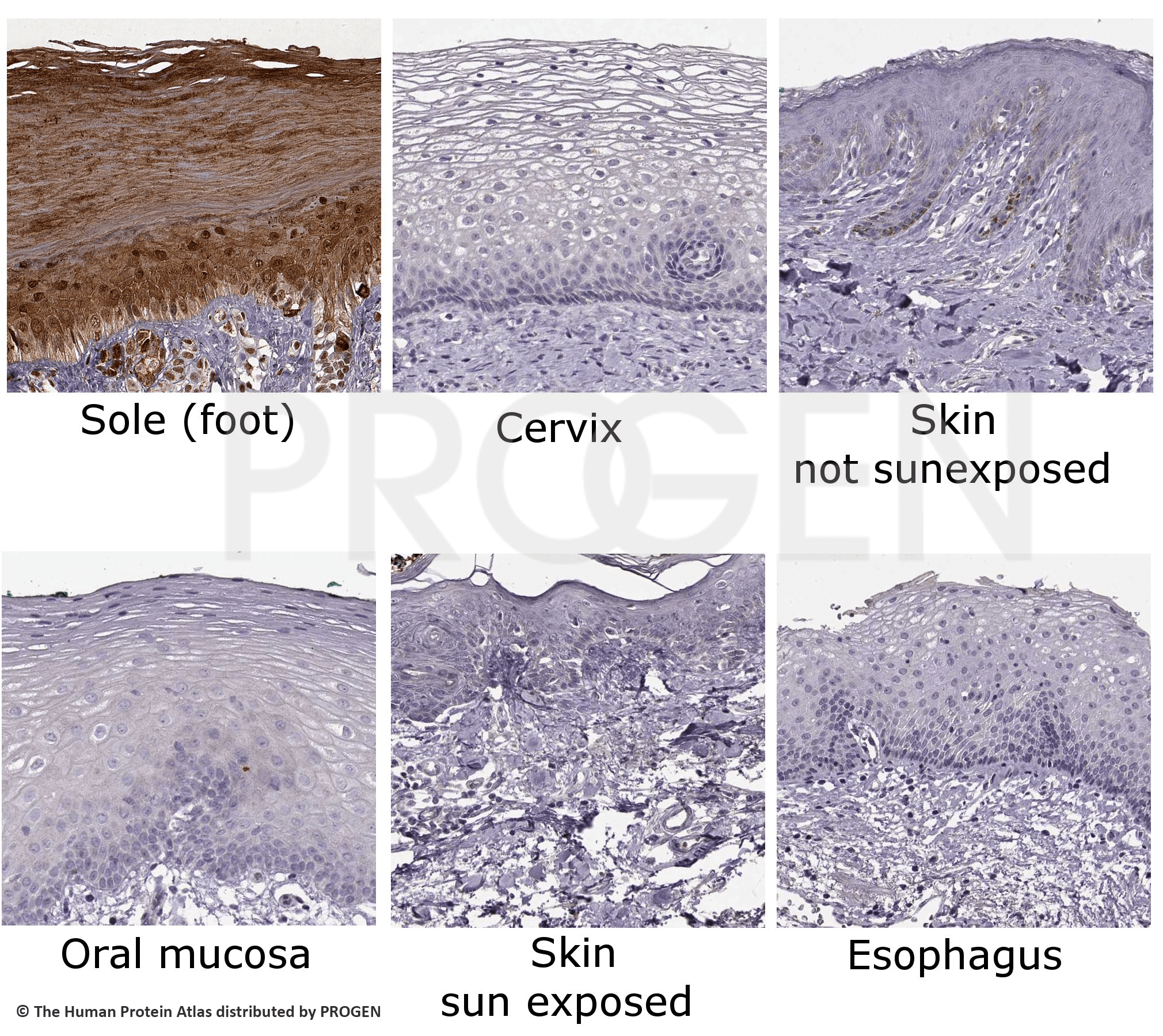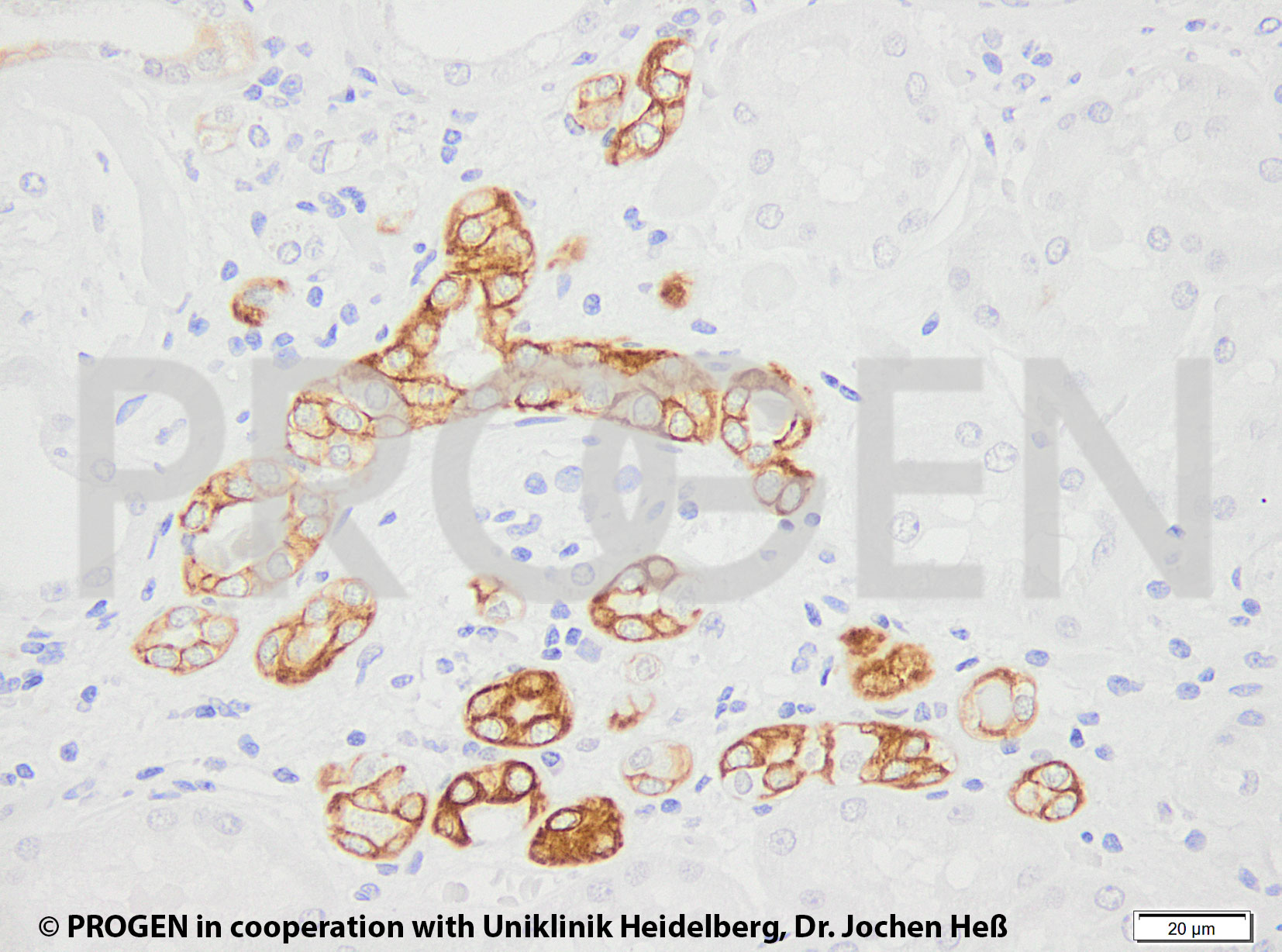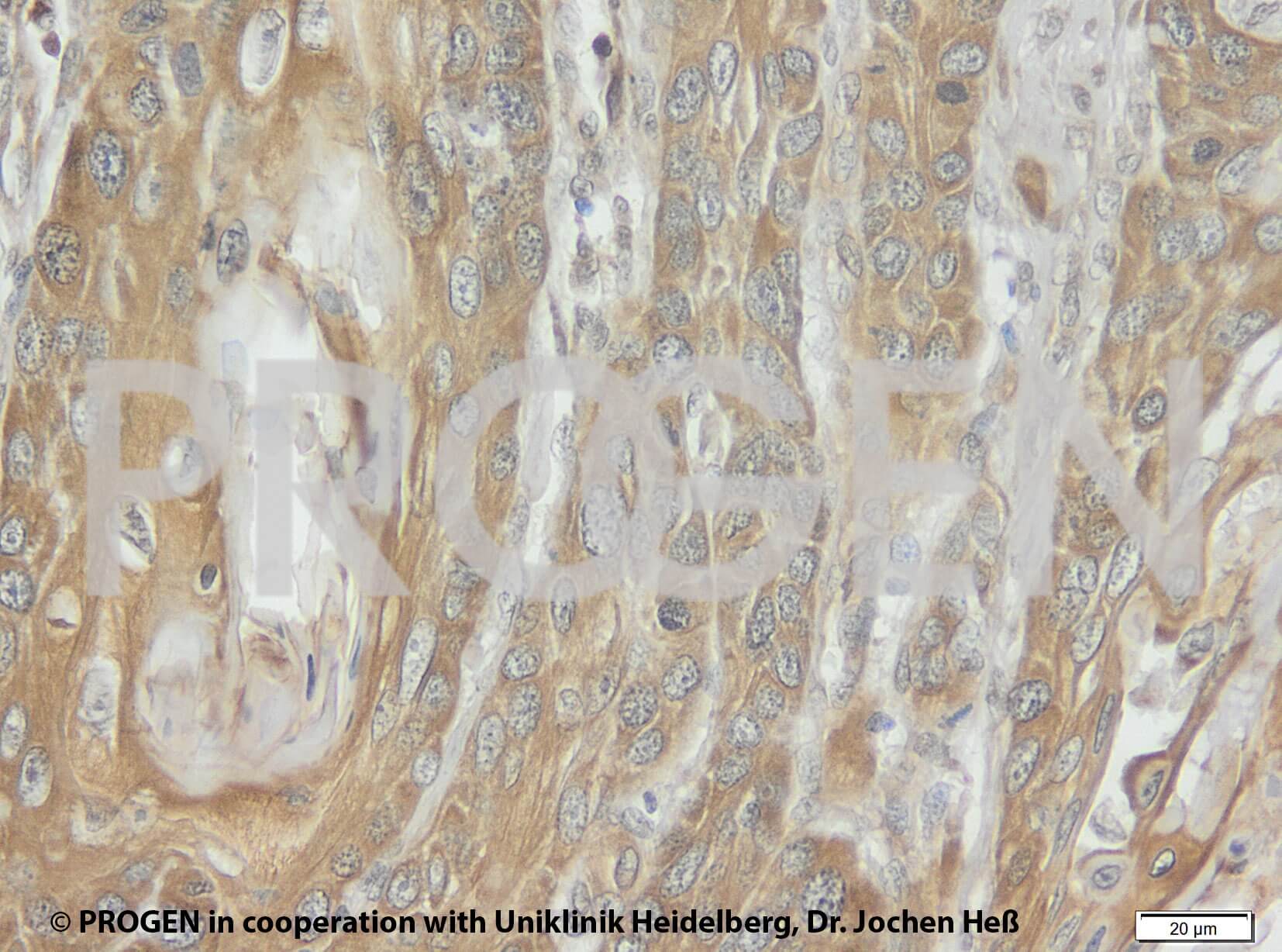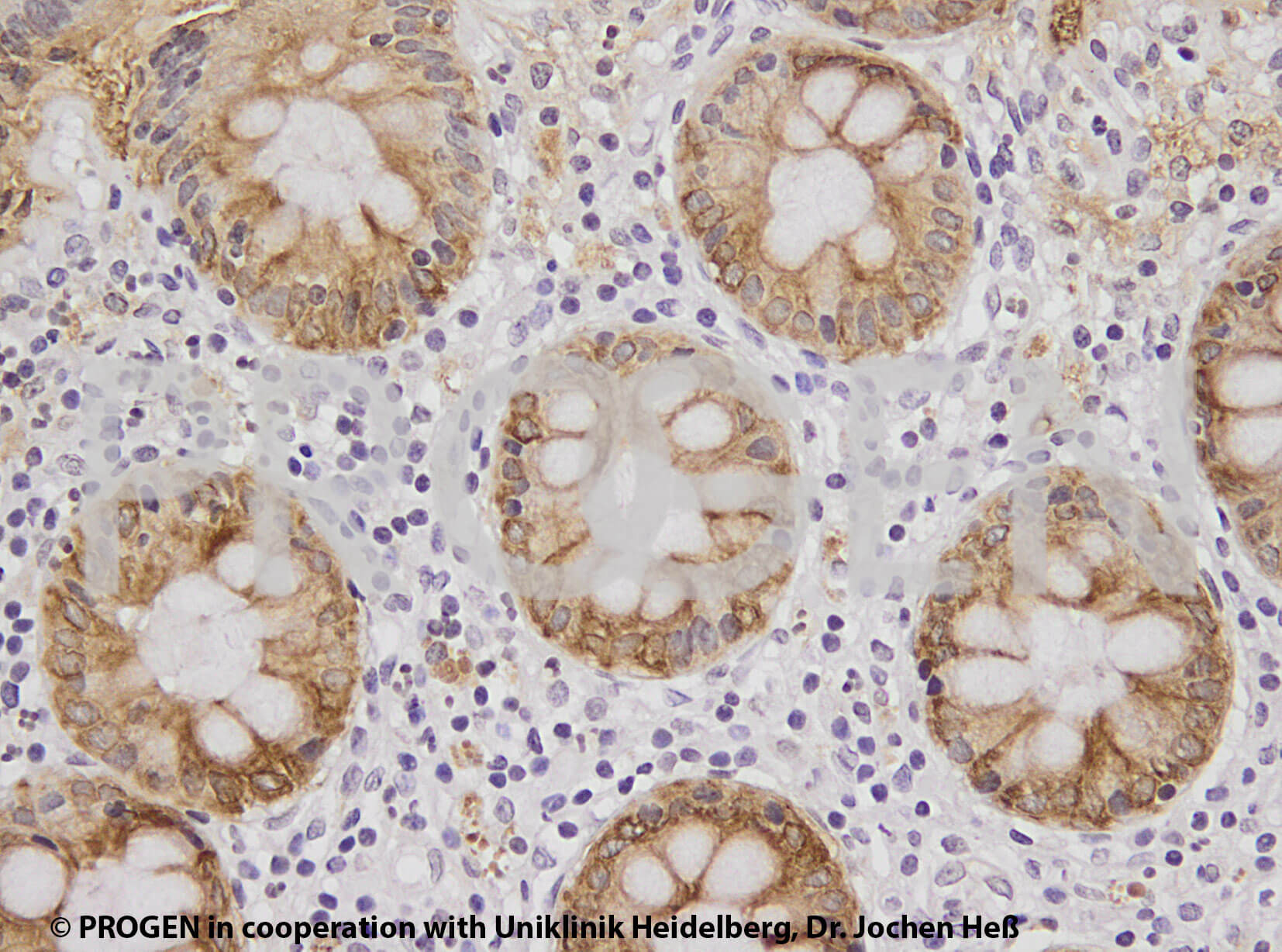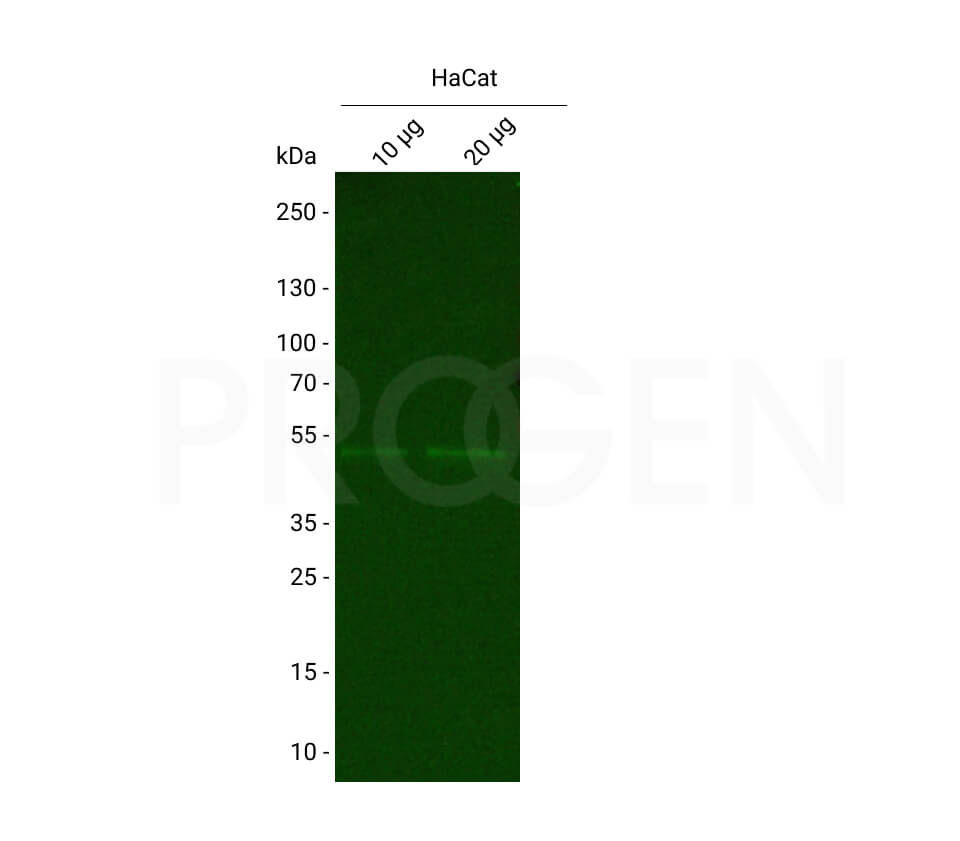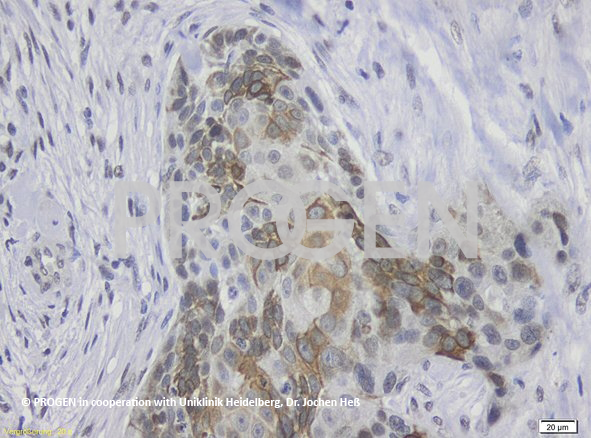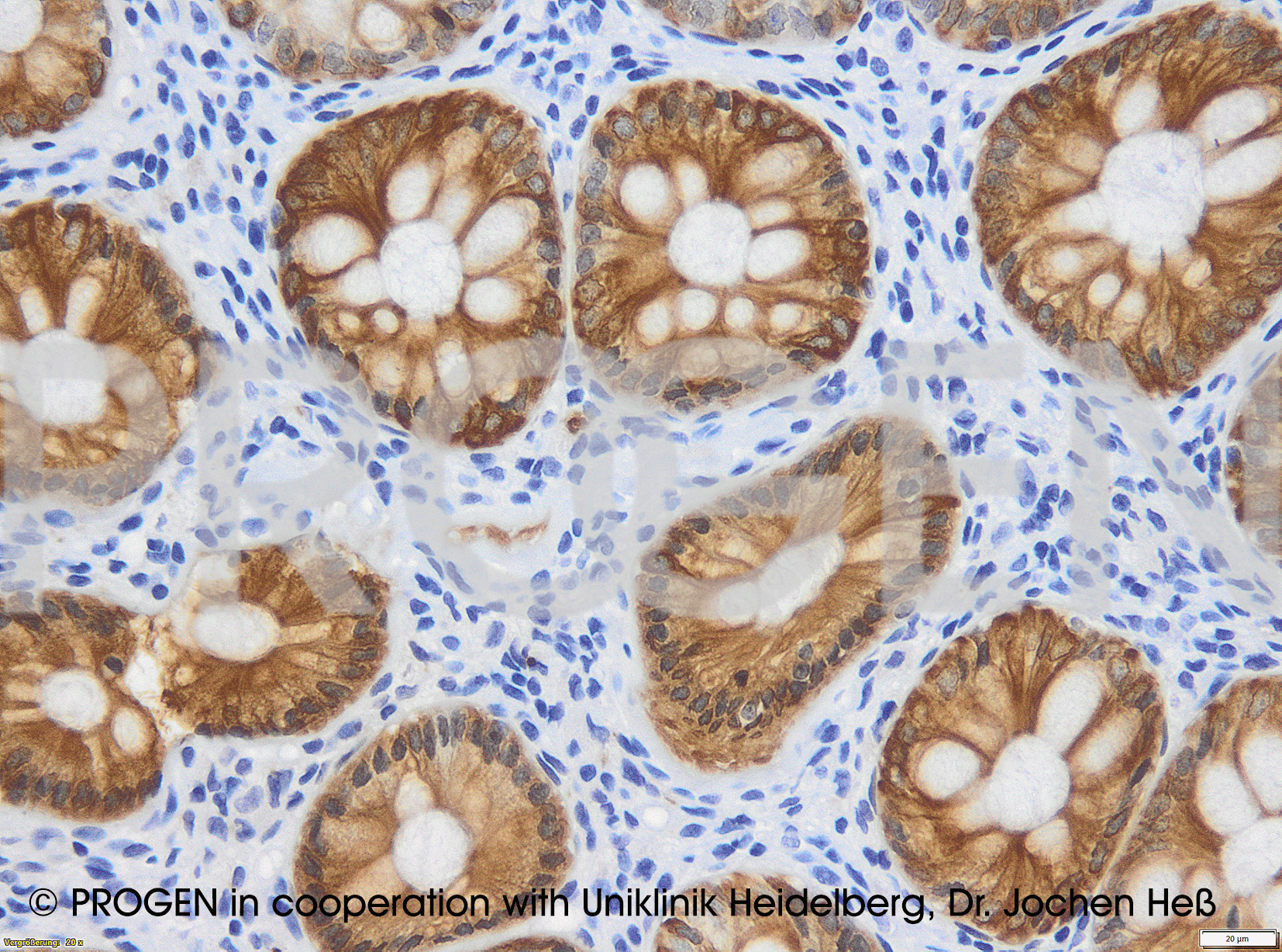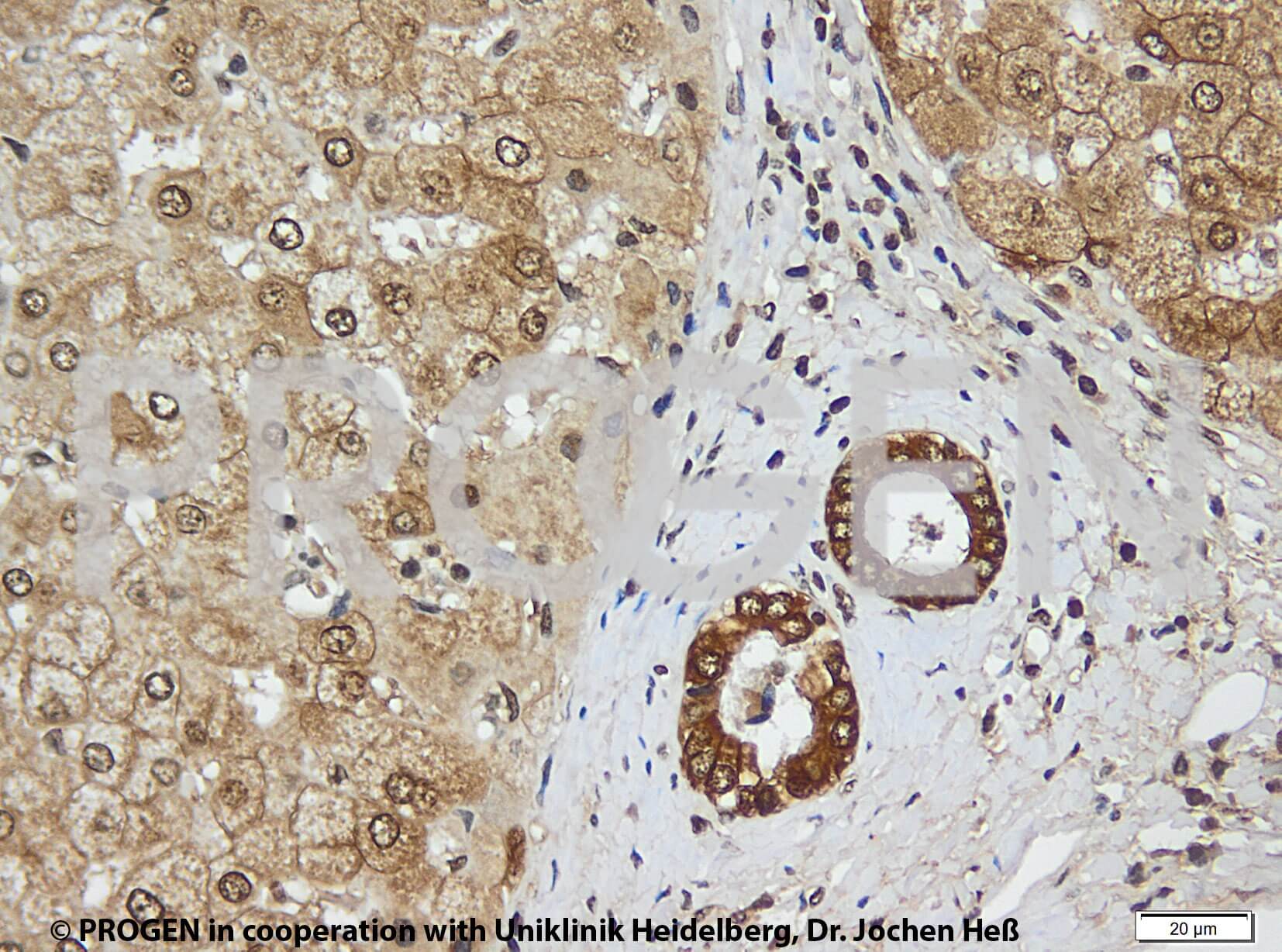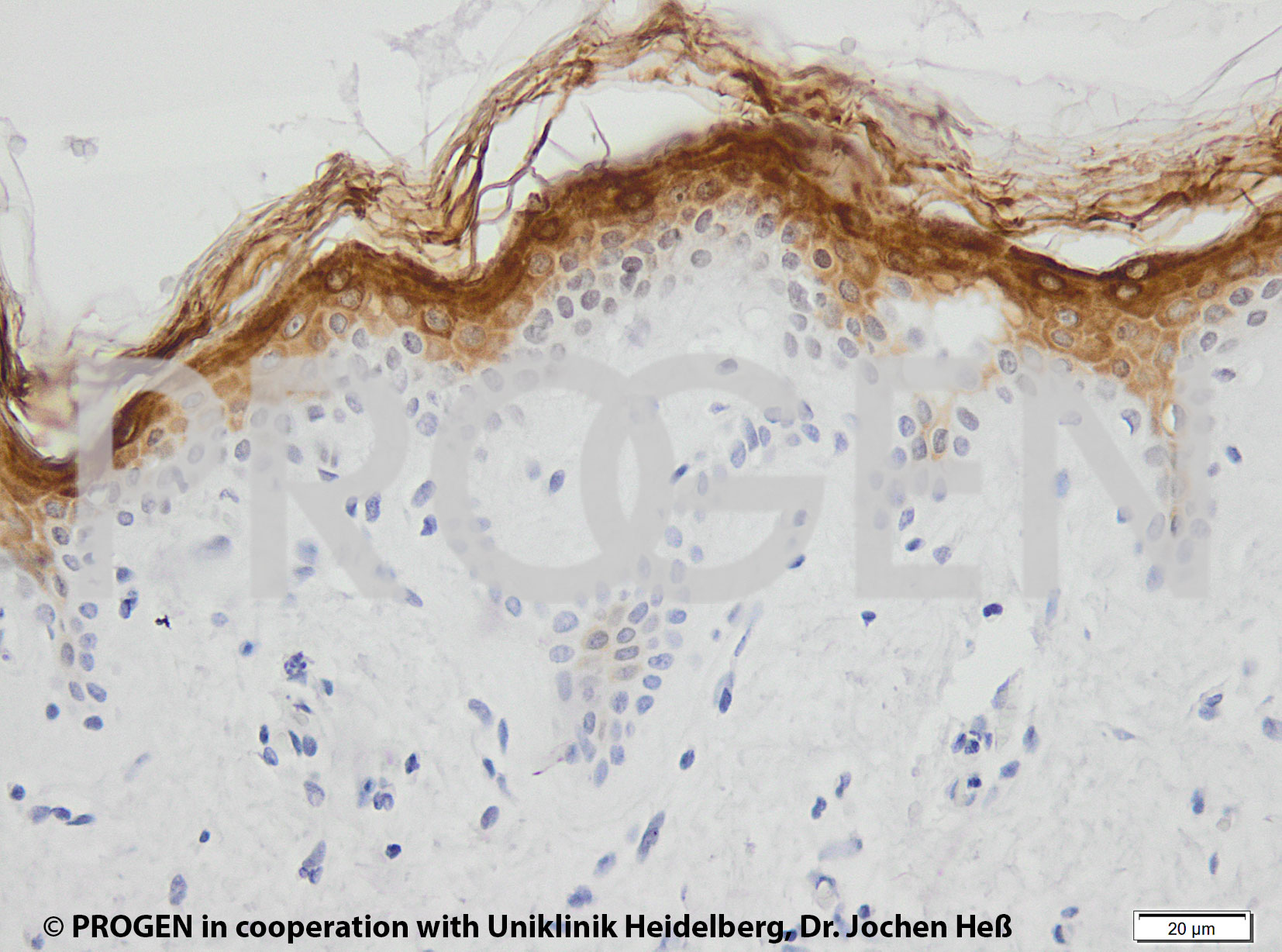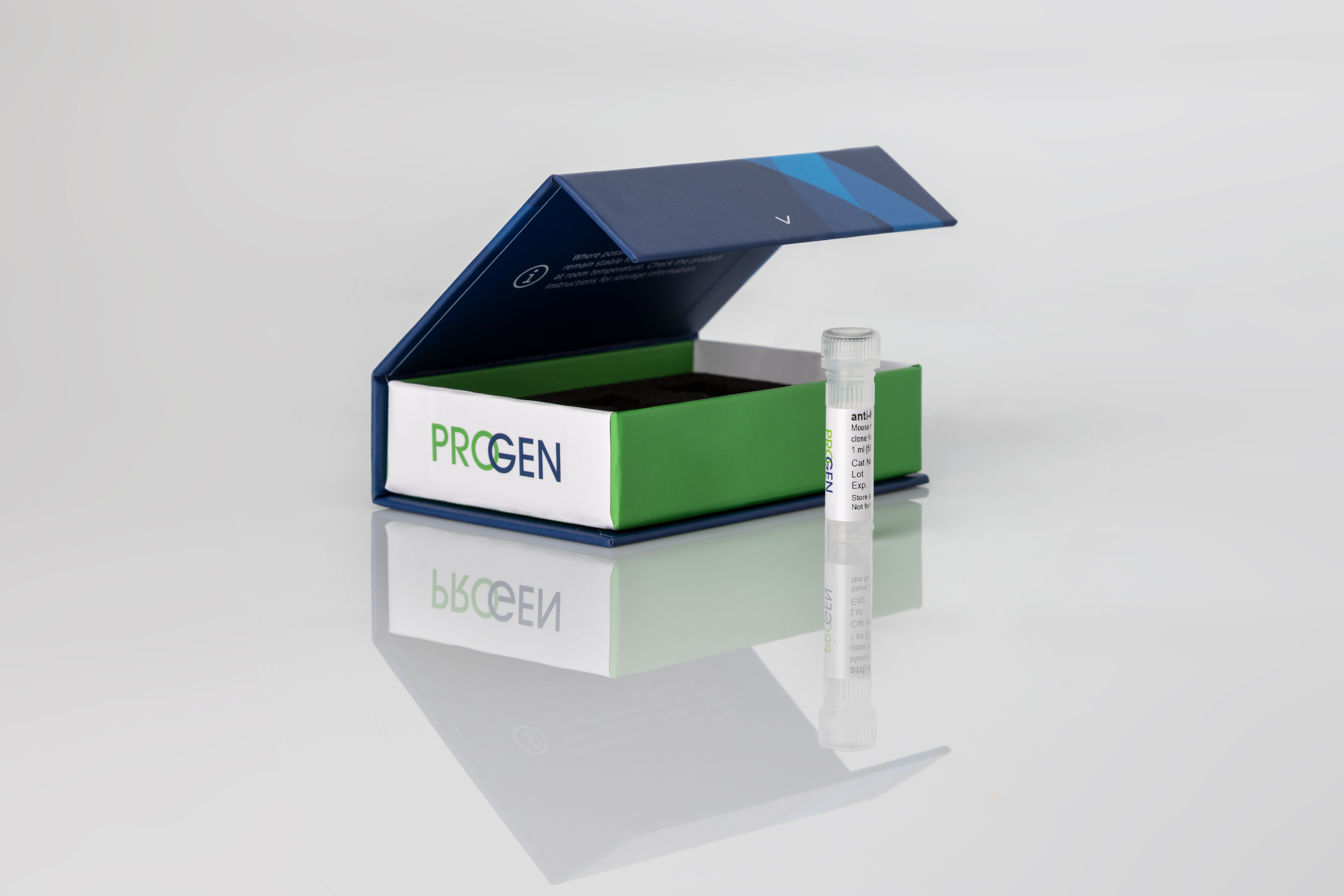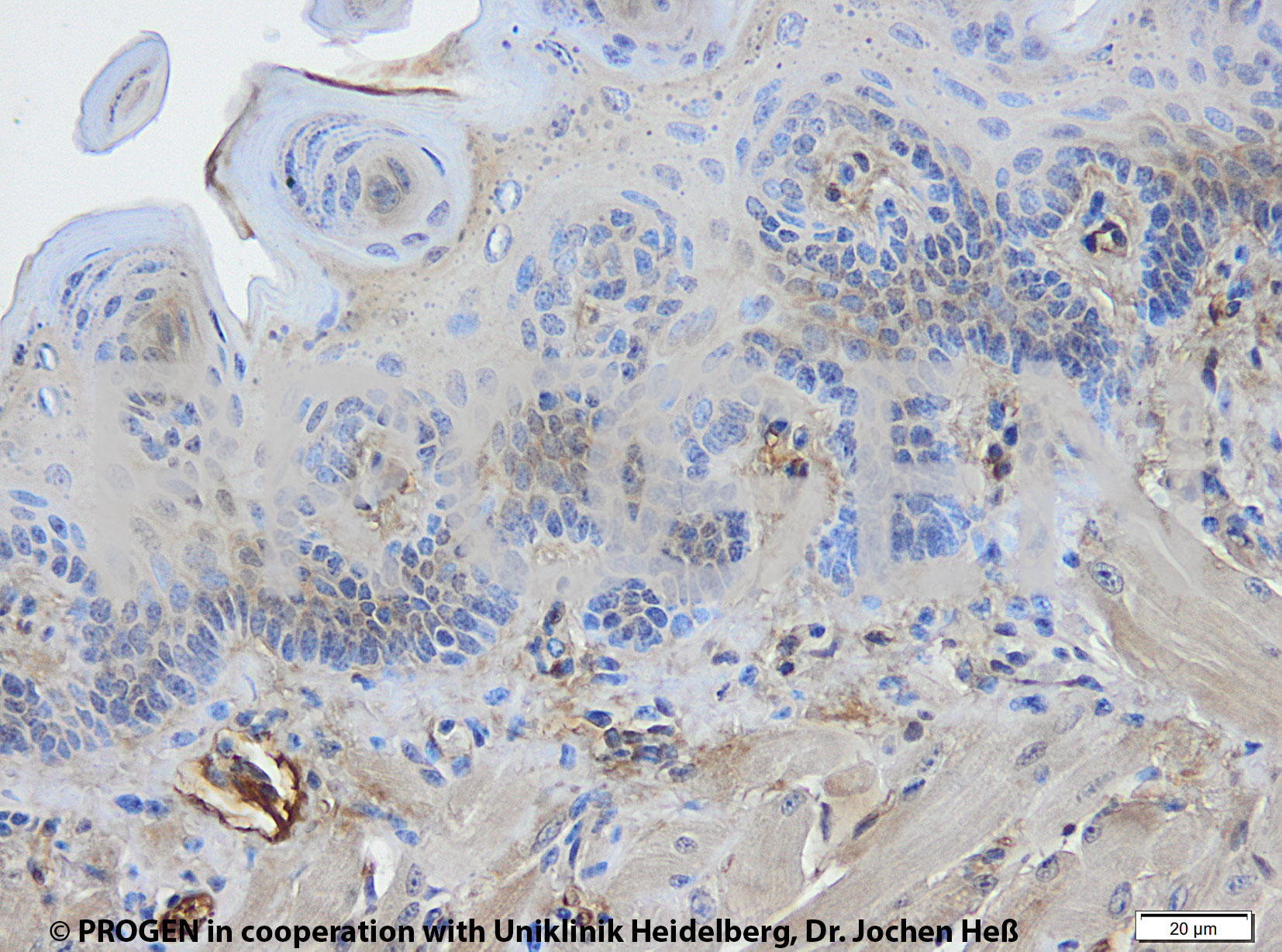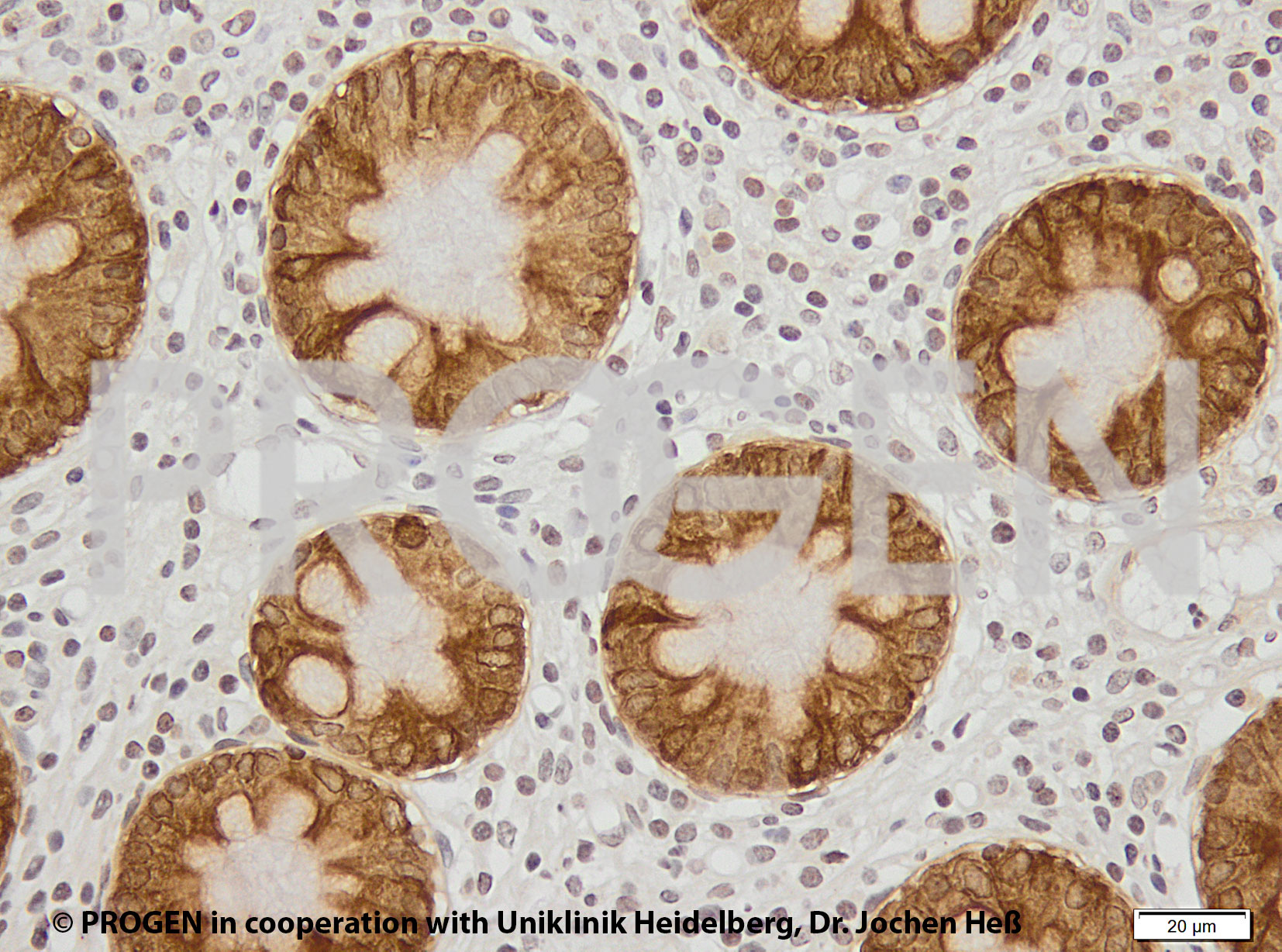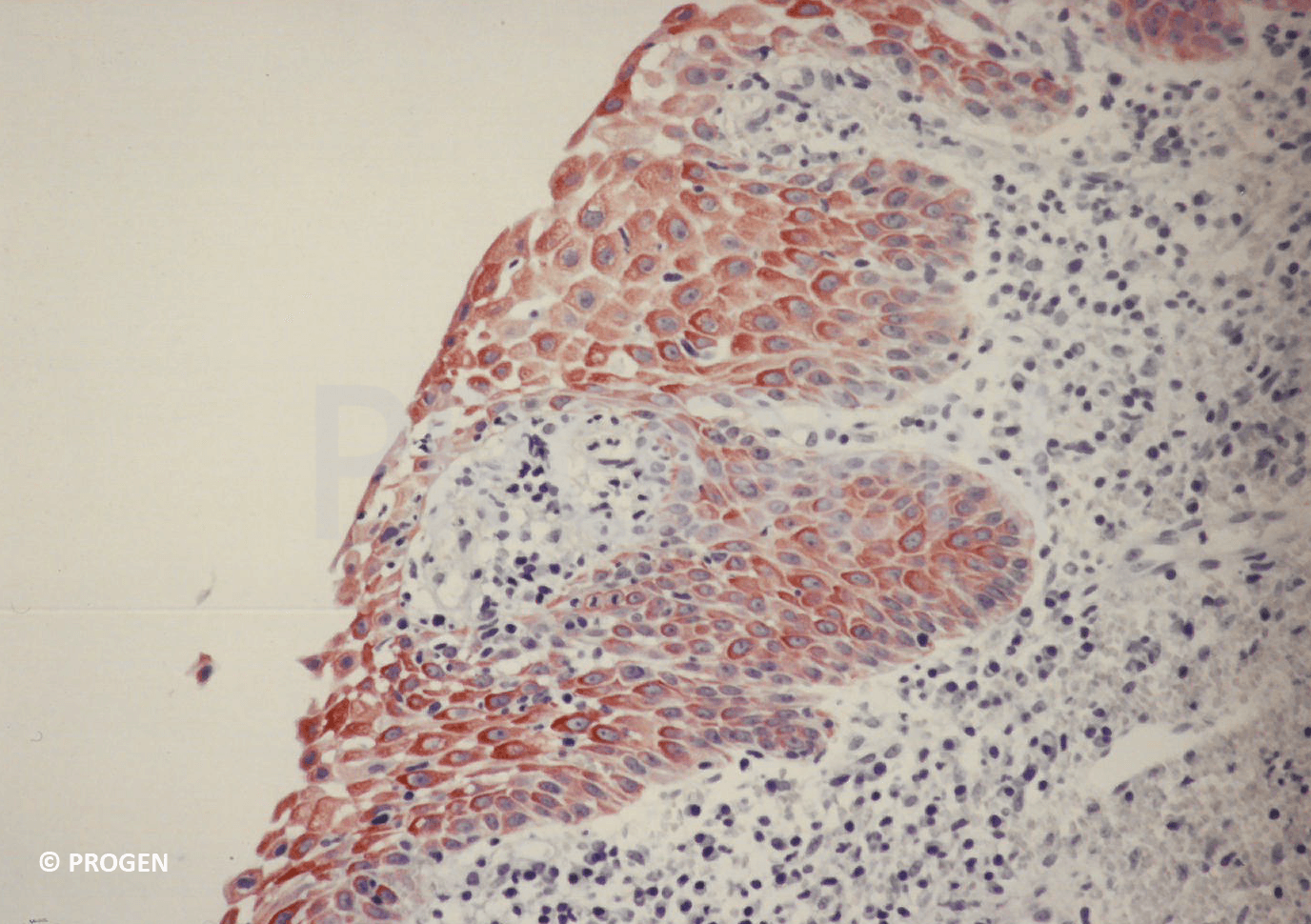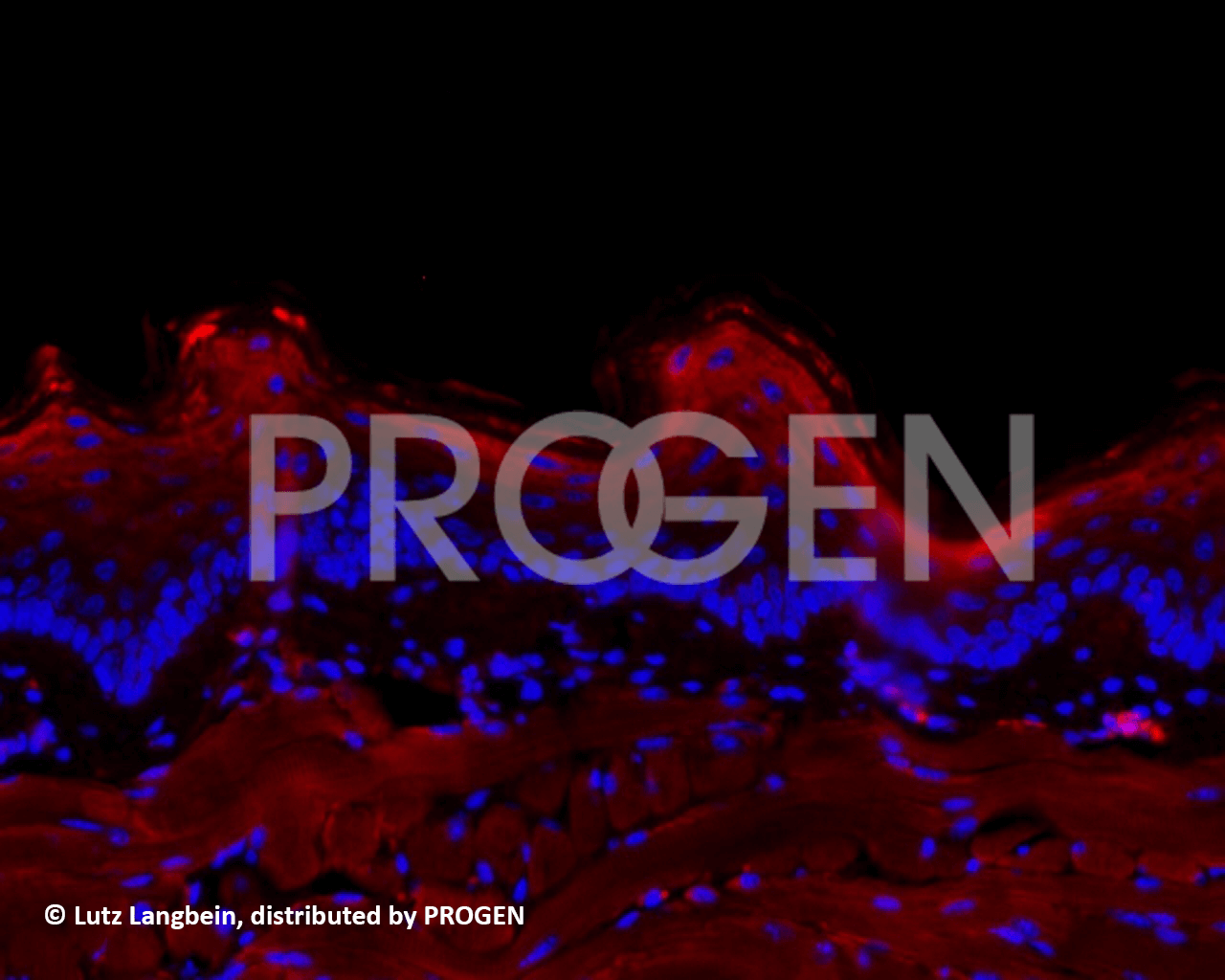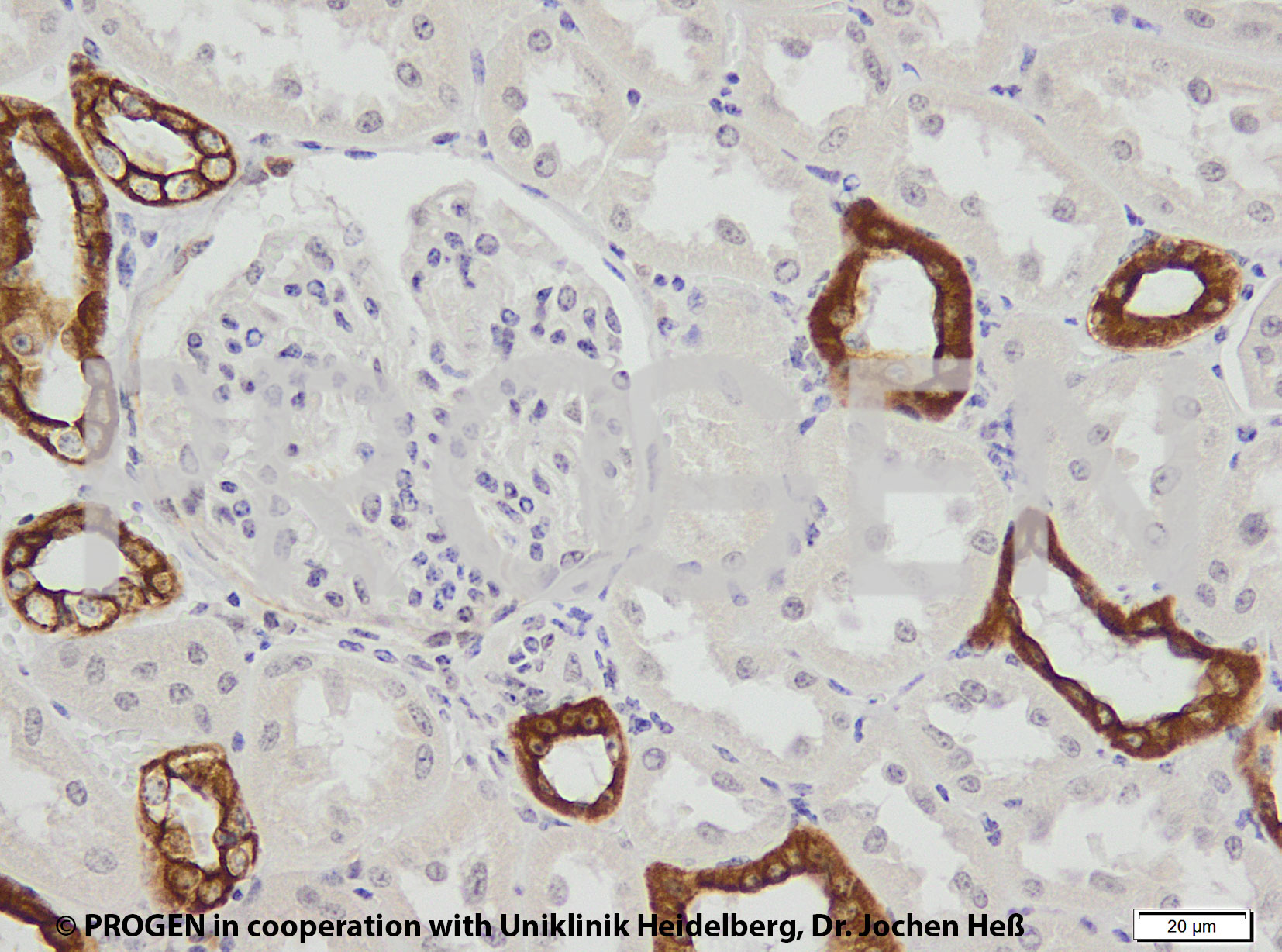anti-Keratin K9 mouse monoclonal, Ks9.70 + Ks9.216, supernatant
- Mouse monoclonal
- Suitable for ICC/IF, IHC and WB
- Reacts with human
- Isotypes: IgG1 and IgG3
Product description
| Quantity | 1 ml |
|---|---|
| Antibody Type | Monoclonal |
| Host | Mouse |
| Isotype | IgG1 and IgG3 |
| Conjugate | Unconjugated |
| Application | ICC/IF, IHC, WB |
| Purification | Hybridoma cell culture supernatant |
| Reactivity | Human |
| No reactivity | Mouse |
| Storage | Short term at 2-8°C; long term storage in aliquots at -20°C; avoid freeze/thaw cycles |
| Intended use | Research use only |
| Clone | Ks9.70 + Ks9.216 |
| Immunogen | Synthetic peptides [(1) amino acids pos. 450-477 and (2) N-terminal amino acids nos. 4-28] of human keratin K9 (MW 62,129; formerly also designated cytokeratin 9) |
| Formulation | Contains 0.09% sodium azide |
| UniprotID | P35527 (Human) |
| Synonym | Keratin, type I cytoskeletal 9, Cytokeratin-9, CK-9, Keratin-9, K9, KRT9 |
| Note | Centrifuge prior to opening |
Applications
| Tested applications | Tested dilutions |
|---|---|
| Immunocytochemistry (ICC)/ Immunofluorescence (IF) | 1:10 |
| Immunohistochemistry (IHC) - frozen | 1:20 |
| Immunohistochemistry (IHC) - paraffin | 1:20 (protease treatment and/or microwave treatment recommended) |
| Western Blot (WB) | 1:25-1:300 |
Background
The antibody reagent represents an excellent marker to study palmoplantar epidermal distribution and differentiation. Specifically reactive in the middle/upper suprabasal layers (stratum spinosum/ granulosum) of the epidermis of palm and sole. K9 can be detected in primary cultures of palmoplantar keratinocytes when they shift to differentiation-promoting conditions and grow stratified (upper cells). K9 has not been found in normal, i.e. non-pathogenic, non-ridged epidermis, beside some minor cells surrounding the acrosyringeal ducts. No labelling has been found in epithelial cells of other stratified epithelia such as oesophagus or complex epithelia (e.g. urothelium) or in ductal or simple epithelia. Negative tissues include: muscle, liver and duodenum.
The antibody cocktail is an excellent new tool to characterize primary cultures of keratinocytes/skin transplants for application in burn treatment.
References/Publications (1)
Downloads
Q & A's
Customer Reviews
Login
FAQs
The concentration of purified antibodies is mentioned on the datasheet.
For prediluted antibodies the concentration may vary from lot to lot. The concentration of these antibodies is not mentioned on the datasheet and can be requested at support@progen.com.
The supernatant format contains FCS proteins from cell culture medium supplemented with FCS.
The serum antibodies contain other proteins present in serum.
- Supernatant and supernatant concentrate: This format contains hybridoma cell culture supernatant. The antibody is not purified and the antibody concentration is not determined. The antibody concentration may vary from lot to lot. Therefore we recommend to titrate the optimal concentration for the application used for each new lot.
- Lyophilized, purified: This format contains purified antibody in lyophilized form. The reconstitution of this antibody is described in the datasheet. The buffer composition after reconstitution is also mentioned on the datasheet.
- Liquid, purified: This format contains purified antibody in liquid format. The concentration is mentioned on the datasheet.
- Prediluted, purified: This format contains purified antibody in liquid format. Most antibodies in this format are diluted to be ready-to-use for IHC with standard tissue. But some antibodies of this format need further dilution for IHC. This is mentioned on the datasheet.
Most of our liquid antibodies and reconstituted lyophilized antibodies may be stored for short term storage (up to 3 month) at 2-8°C. For long term storage we recommend to store the antibody at -20°C in aliquots. Please avoid freeze and thaw cycles.
Most of our conjugated antibodies should be stored at 2-8°C.
The individual storage conditions are mentioned on the datasheet.
Positive tissue: outer root sheath of hair follicle, sweat gland epithelium on the foot pads, filiform papillae of tongue.
- Homogenization (e.g. with polytron) of tissue samples in buffer L (140 mM NaCl, 5 mM EDTA, 5 mM EGTA, 10 mM Tris-HCl pH7.6) supplemented with protease inhibitors; use 1 ml buffer for approx. 0.1 g tissue.
- To reduce viscosity by high DNA contents, benzonase treatment can be included (30 min at 37°C).
- Centrifugation for 10 min (max. speed, table top centrifuge).
- Resuspend pellet in "Triton extraction buffer" (buffer L plus 1% Triton X-100) using e.g. a dounce homogenizer.
- Centrifugation for 10 min (max. speed, table top centrifuge).
- Resuspend pellet in "high salt extraction buffer" (buffer L plus 1.5 M KCl) using e.g. a dounce homogenizer.
- Centrifugation for 10 min (max. speed, table top centrifuge).
- Resuspend pellet in "Triton extraction buffer" (buffer L plus 1% Triton X-100) using e.g. a dounce homogenizer.
- Centrifugation for 10 min (max. speed, table top centrifuge).
- Resuspend pellet in Laemmli buffer and boil (5 min) for SDS-PAGE.

